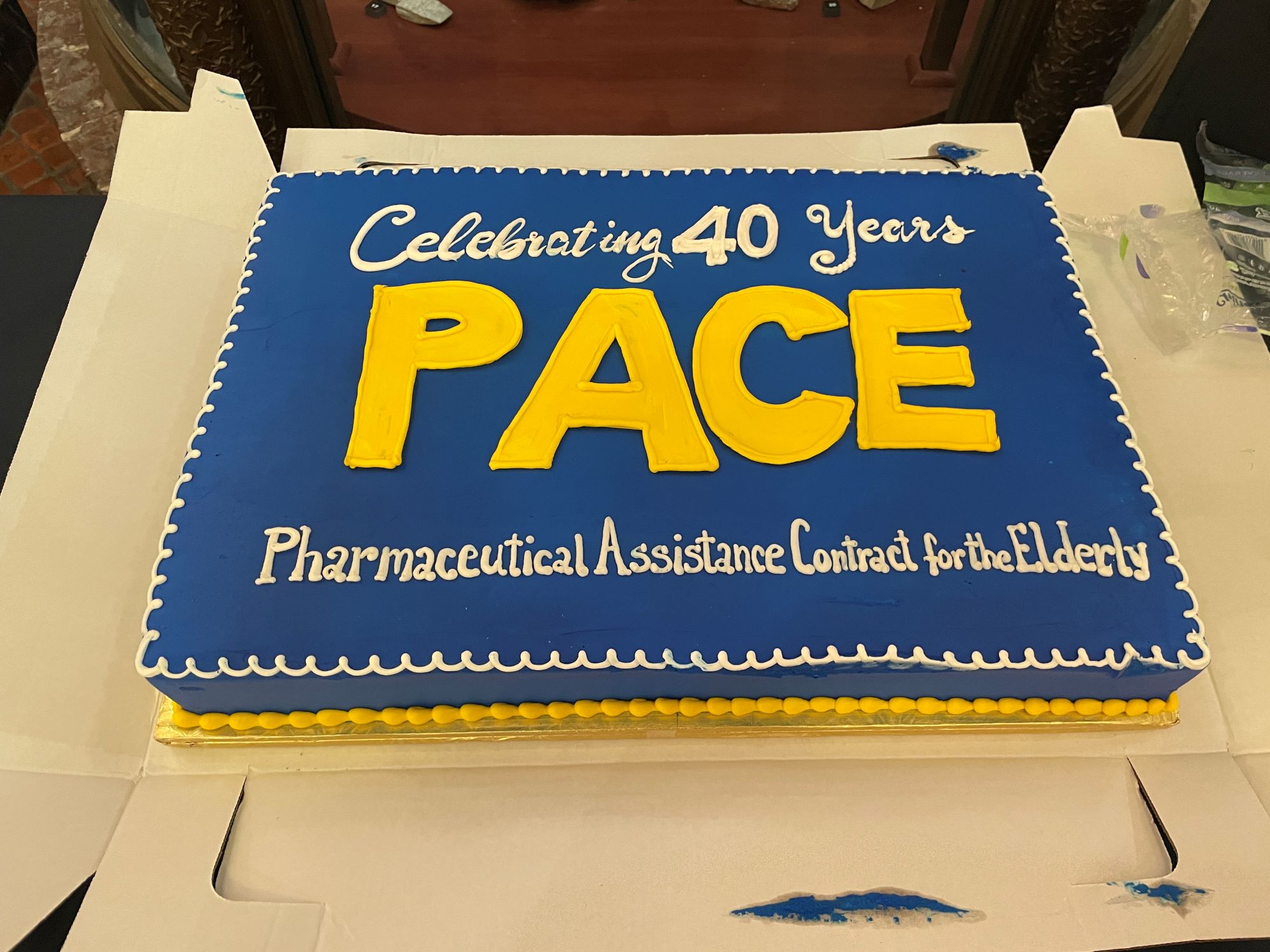 .
. 
Harrisburg, PA – The Pennsylvania Department Aging today marked 40 years since the Pharmaceutical Assistance Contract for the Elderly (PACE) Program was established. In 1983, the Pennsylvania General Assembly passed legislation that then-Governor Dick Thornburgh signed into law to create this landmark program, which has since become a national model.
PACE offers low-cost prescription medication to qualified Pennsylvanians aged 65 and older. The program works with Medicare Part D plans and other prescription drug plans such as retiree/union coverage, Medicare Advantage (HMO, PPO), and Veterans Benefits to lower out-of-pocket costs for medications.
"For the past four decades, the PACE Program has remained an important lifeline to help older Pennsylvanians save money on their prescription medications. Those savings have allowed our older adults to keep living independently in their own homes while also paying for other essential items such as food, bills, and mortgage or rent," said Secretary of Aging Jason Kavulich. "We are so grateful for the support and leadership of legislators and stakeholders of the past, present and future. Our Commonwealth's continued, undivided support for PACE signals our commitment to supporting the health and well-being of older adults as we promote a unique lottery-funded model that is the envy of other states."
Since its inception, PACE has helped more than 1.6 million older adults pay for more than 360 million prescriptions. PACE's other major milestones include:
- 1996: The PACE Needs Enhancement Tier (PACENET) was created to expand the pool of eligible older adults. PACENET covers seniors who have higher incomes than PACE enrollees and has higher cost sharing by the enrollee.
- 2021: In response to the COVID pandemic, PACE partnered with independent, chain and institutional pharmacies to support the vaccination of 30,000 Pennsylvanians at facilities and in their homes.
- 2021: Through the PACE Program's network, Pennsylvania pharmacies began dispensing naloxone kits through the Naloxone Copayment Assistance Program. To date, this program has dispensed 7,500 kits.
- 2022: PACE collaborated with the PA Department of Health on a pilot program to provide financial assistance until June 2023 to help nearly 1,400 enrollees who are medical marijuana users.
PACE and PACENET currently serve more than 250,000 older Pennsylvanians.
"The achievements and longevity of the PACE Program over the past 40 years are truly vast. Not only do they indicate the changing needs of older Pennsylvanians, but the legislators and other leaders are listening to what those needs are and are making the necessary changes that best benefit older adults. PACE could not have evolved as it did over the years without those collaborations," said Tom Snedden, director of PACE. "It is a privilege to serve as the program's director and to seek new opportunities to continuously support older Pennsylvanians. I urge any Pennsylvanian aged 65 and older to check out what PACE offers and see how it can benefit them."
At the celebration held in the State Capitol, Secretary Kavulich and Snedden were joined by PACE staff and legislators who have supported enhancements to the PACE Program to better support older adults, including Senator Judy Ward, majority chair of the Senate Aging & Youth Committee; Senator Maria Collett, minority chair of the Senate Aging & Youth Committee; State Rep. Steven Mentzer, minority chair of the House Aging & Older Adult Services Committee; and State Representative Dan Williams, member of the House Aging & Older Adult Services Committee.
"Congratulations to the PACE/PACENET program on 40 years of helping our seniors afford the life-saving medication they need," said Sen. Ward. "As the chair of the Senate Aging and Youth Committee, I have a deep appreciation of the immense value this program brings to older adults across Pennsylvania. PACE/PACENET helps to lower prescription drug costs for eligible seniors, giving them peace of mind when it comes to their medications and a higher quality of life."
Senator Ward has sponsored legislation (S.B. 607) that would keep older adults eligible for PACE and PACENET if the maximum income limit is exceeded due to a Social Security cost-of-living-adjustment. State Representative Patty Kim, chair of the House Aging & Older Adult Services Committee, has sponsored similar legislation in the House.
"Earlier this year, I was proud to have the House unanimously pass my legislation (H.B. 1184) that would allow older adults to continue to have access to essential medications through the PACE and PACENET pharmaceutical programs - regardless of any increase in their Social Security," said Rep. Kim. "In total, this bill would allow nearly 29,400 senior citizens to remain eligible for their lifesaving PACE prescriptions. I am fiercely committed to making sure that our vulnerable senior population has access to the health care and resources they need to thrive."
Older adults can learn about the PACE Program, including how to qualify and enroll, by visiting the Department of Aging's website.
Note: Video and photos of the event will be available at PAcast.com.

